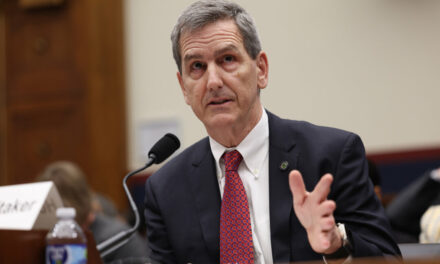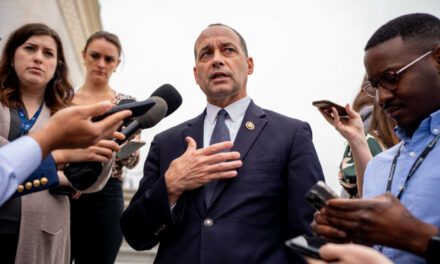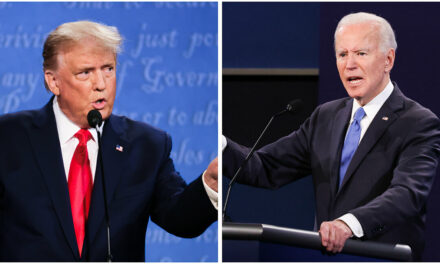We support our Publishers and Content Creators. You can view this story on their website by CLICKING HERE.
Sam Mohawk, a Boeing quality assurance investigator, alleges the company mishandled and improperly stored ‘nonconforming’ parts that were used for jets.
A new Boeing whistleblower was announced late on June 17 by a Senate committee less than 24 hours before it will hold the first hearing featuring the company’s chief since the Alaska Airlines door panel incident in January.
The memorandum identified the whistleblower as Sam Mohawk, a quality assurance investigator at Boeing’s Material Review Segregation Area in its Renton, Washington facility.
Mr. Mohawk alleges that Boeing mishandled, improperly tracked, and stored faulty or “nonconforming” parts that were likely installed on planes, including the popular 737 Max, built at the Renton facility.
He also alleges that Boeing cut “most of the highly trained and experienced quality inspectors” at Renton to deal with high overhead costs from parking the 737 Max after the Federal Aviation Administration (FAA) temporarily grounded the jet following fatal 2018 and 2019 crashes.
“Mohawk has also alleged that he has been told by his supervisors to conceal evidence from the FAA, and that he is being retaliated against as a result,” the Senate Homeland Security’s Permanent Subcommittee on Investigations said in a statement.
Boeing responded to the announcement in a statement to The Epoch Times.
“We received this document late Monday (June 17) evening and are reviewing the claims. We continuously encourage employees to report all concerns as our priority is to ensure the safety of our airplanes and the flying public,” the spokesperson said.
Mr. Blumenthal, chair of the Senate Homeland Security’s Permanent Subcommittee on Investigations, will host Mr. Calhoun at 2 p.m. (EST) on June 18 to testify on Boeing’s “broken safety culture.”
Mr. Calhoun will leave the company by the end of the year, and Boeing is currently looking for his replacement.
He has said the company was “accountable for what happened” when a door panel came off a newly manufactured 737 Max right after takeoff on Jan. 5.
“From the beginning, we took responsibility and cooperated transparently with the [National Transportation Safety Board] and the FAA in their respective investigations,” Mr. Calhoun wrote in his prepared remarks for the June 18 hearing.
“In our factories and in our supply chain, we took immediate action to ensure the specific circumstances that led to this accident would not happen again,” he added.
After the Alaskan Airlines incident, the FAA gave Boeing 90 days to submit a comprehensive safety plan to address issues with its manufacturing quality assurance.
Mr. Mohawk is not the first whistleblower to step forward and allege that Boeing has shirked quality assurance in exchange for profits while retaliating against employees who go public.
Mr. Pierson alleged that Boeing wasn’t being truthful when it told Congress in March that the documents detailing who worked on the faulty door panel could not be found or were likely never created.
Mr. Pierson, now the executive director of the Foundation for Aviation Safety, said he had seen the documents personally.
“I know this because I’ve personally passed them to the FBI,” he said.
Mr. Salehpour alleged that Boeing was taking “shortcuts” to increase production levels on its jets.
“They are putting out defective airplanes,” Mr. Salehpour told the committee.
“I want to make clear that I have raised these issues over three years. I was ignored. I was told not to create delays. I was told, frankly, to shut up,” he added.
Boeing did not respond to a request for comment after the April hearing.
Samantha Flom contributed to this report.

 Conservative
Conservative  Search
Search Trending
Trending Current News
Current News 







